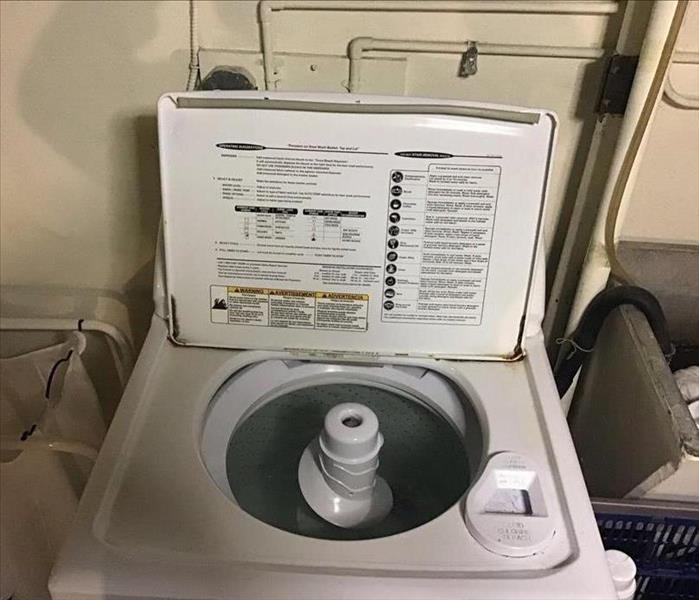Don't Forget Your Plumbing
12/10/2019 (Permalink)
 Washing machine hook-ups are a major plumbing issue, especially if the hose is broken, loose or damaged.
Washing machine hook-ups are a major plumbing issue, especially if the hose is broken, loose or damaged.
Many homeowners overlook issues that could develop into significant plumbing problems, and maybe even expensive water damage.
An easy visual inspection or simple test is often all it takes to ensure your plumbing is in good working condition and catch any problem before it becomes as major catastrophe.
Here’s a checklist of 4 common plumbing problems, and what you can do to prevent them from becoming a problem for you:
Washing Machine
Did you know that the average washing machine will use up to 40 gallons of water each cycle? With that much water pumping through, you want to be sure to check both the supply and wastewater lines about once a quarter.
Sinks
One of the biggest wear-and-tear problems for sinks are the seals and washers which will deteriorate over time.
You’ll want to check under the sink cabinets for any signs of leaking, which could include dampness, deterioration, or odors.
Toilet
When your toilet starts to wear down, it could lead to higher monthly water bills, or even potential flooding and major water damage.
In order to inspect your toilet, remove the tank lid and flush and make sure all the components (like the flush valve and flapper) are all in good working condition.
One easy way to check for a toilet leak is to add a couple drops of food coloring into the tank. After a few hours, check the bowl – if you see the dye color, then you know there’s a leak problem.
Showers & Tubs
Showers and tubs are often the most heavily used plumbing fixtures in a home, so it’s important to make sure everything is working properly.
Make sure to check faucets, drains, and shower heads on a regular basis. You’ll also want to check the seals. If caulk deteriorates, it could lead to a mold problem behind your walls.
If you see any signs of damage or corrosion, or if you decide you’d like a professional opinion, our team of experts here at SERVPRO of Hackensack/Little Ferry can help make sure you minimize any water damage. And if you do need more advanced help, know that we have all the specialized training and equipment necessary to handle even a large-scale water emergency.





 24/7 Emergency Service
24/7 Emergency Service